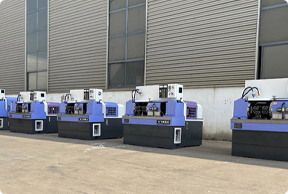
-
 Afrikaans
Afrikaans -
 Albanian
Albanian -
 Amharic
Amharic -
 Arabic
Arabic -
 Armenian
Armenian -
 Azerbaijani
Azerbaijani -
 Basque
Basque -
 Belarusian
Belarusian -
 Bengali
Bengali -
 Bosnian
Bosnian -
 Bulgarian
Bulgarian -
 Catalan
Catalan -
 Cebuano
Cebuano -
 Corsican
Corsican -
 Croatian
Croatian -
 Czech
Czech -
 Danish
Danish -
 Dutch
Dutch -
 English
English -
 Esperanto
Esperanto -
 Estonian
Estonian -
 Finnish
Finnish -
 French
French -
 Frisian
Frisian -
 Galician
Galician -
 Georgian
Georgian -
 German
German -
 Greek
Greek -
 Gujarati
Gujarati -
 Haitian Creole
Haitian Creole -
 hausa
hausa -
 hawaiian
hawaiian -
 Hebrew
Hebrew -
 Hindi
Hindi -
 Miao
Miao -
 Hungarian
Hungarian -
 Icelandic
Icelandic -
 igbo
igbo -
 Indonesian
Indonesian -
 irish
irish -
 Italian
Italian -
 Japanese
Japanese -
 Javanese
Javanese -
 Kannada
Kannada -
 kazakh
kazakh -
 Khmer
Khmer -
 Rwandese
Rwandese -
 Korean
Korean -
 Kurdish
Kurdish -
 Kyrgyz
Kyrgyz -
 Lao
Lao -
 Latin
Latin -
 Latvian
Latvian -
 Lithuanian
Lithuanian -
 Luxembourgish
Luxembourgish -
 Macedonian
Macedonian -
 Malgashi
Malgashi -
 Malay
Malay -
 Malayalam
Malayalam -
 Maltese
Maltese -
 Maori
Maori -
 Marathi
Marathi -
 Mongolian
Mongolian -
 Myanmar
Myanmar -
 Nepali
Nepali -
 Norwegian
Norwegian -
 Norwegian
Norwegian -
 Occitan
Occitan -
 Pashto
Pashto -
 Persian
Persian -
 Polish
Polish -
 Portuguese
Portuguese -
 Punjabi
Punjabi -
 Romanian
Romanian -
 Russian
Russian -
 Samoan
Samoan -
 Scottish Gaelic
Scottish Gaelic -
 Serbian
Serbian -
 Sesotho
Sesotho -
 Shona
Shona -
 Sindhi
Sindhi -
 Sinhala
Sinhala -
 Slovak
Slovak -
 Slovenian
Slovenian -
 Somali
Somali -
 Spanish
Spanish -
 Sundanese
Sundanese -
 Swahili
Swahili -
 Swedish
Swedish -
 Tagalog
Tagalog -
 Tajik
Tajik -
 Tamil
Tamil -
 Tatar
Tatar -
 Telugu
Telugu -
 Thai
Thai -
 Turkish
Turkish -
 Turkmen
Turkmen -
 Ukrainian
Ukrainian -
 Urdu
Urdu -
 Uighur
Uighur -
 Uzbek
Uzbek -
 Vietnamese
Vietnamese -
 Welsh
Welsh -
 Bantu
Bantu -
 Yiddish
Yiddish -
 Yoruba
Yoruba -
 Zulu
Zulu
Prices and Quotes for Thread Rolling Machines in the Manufacturing Industry Today
Understanding the Cost Factors of Thread Rolling Machines
Thread rolling machines play a crucial role in the manufacturing industry, particularly in the production of fasteners and precision components. These machines utilize a unique process that enhances the strength and integrity of the threads, making them vital for various applications, from automotive to aerospace. However, when it comes to investing in thread rolling machines, potential buyers often seek clarity on the price quotes and the factors that influence these costs.
Key Cost Factors
1. Type of Machine The price of thread rolling machines can vary significantly based on their type. There are generally three classifications horizontal, vertical, and planetary thread rolling machines. Horizontal machines are most common for large-scale operations, while vertical machines are often used for smaller, intricate parts. Planetary machines, which create threads in a different manner, tend to be more specialized and can command higher prices due to their advanced capabilities.
2. Capacity and Size The production capacity and size of the machine are essential considerations. Machines that can handle larger parts or operate at higher speeds typically come at a premium. Manufacturers interested in higher throughput and efficiency may find it worthwhile to invest in larger machines, thus affecting the initial price point.
3. Technological Features Modern thread rolling machines often come equipped with advanced technological features such as computer numerical control (CNC), automation, and precision monitoring systems. These features enhance productivity and accuracy but can raise the cost. Buyers must assess whether these technologies align with their production needs and budgets.
4. Material and Build Quality The quality of materials used in the construction of the machine can significantly impact the price. Machines made from high-quality steel and equipped with robust components are typically more durable and reliable, warranting a higher investment. Long-term users must weigh the costs against potential maintenance and repair savings.
thread rolling machine price quotes

5. Brand and Manufacturer Reputation Established manufacturers with a strong reputation for quality and service often charge more for their machines. However, investing in a well-known brand can lead to better after-sales support and availability of spare parts, which is crucial for minimizing downtime.
6. Customization Needs Customizing thread rolling machines to meet specific production requirements can also affect the price. Customized features or attachments may increase the overall cost, but they can also enhance efficiency and functionality, ultimately providing a solid return on investment.
7. Market Conditions Supply chain dynamics, including raw material costs and demand fluctuations, can influence the market price for thread rolling machines. Potential buyers should stay informed about market trends, as fluctuations can lead to changing price quotes over time.
Conclusion
When considering the purchase of a thread rolling machine, it is essential to take a comprehensive approach to evaluate the various factors that contribute to pricing. Understanding the specific needs of the operation, the types of materials and parts being produced, and the desired production rate will help potential buyers find the right machine at a fair price.
Gathering quotes from multiple suppliers and considering not only the initial purchase cost but also long-term operational costs is advisable. By doing so, businesses can make informed decisions that align with their operational goals and ensure they choose the most suitable thread rolling machine for their needs. Ultimately, the right investment can lead to increased efficiency, improved product quality, and enhanced competitiveness in the rapidly evolving manufacturing landscape.
